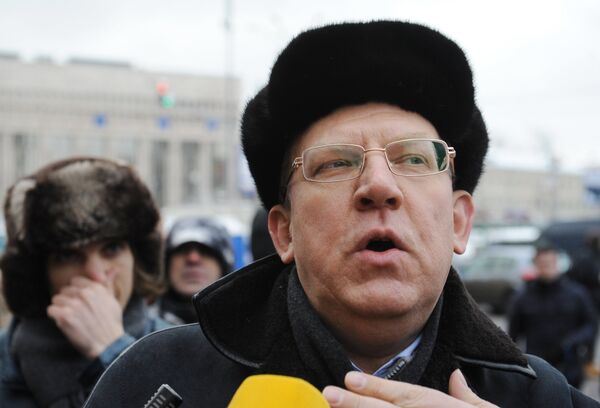The Russian opposition will only be able to put forward a presidential candidate popular enough to challenge Vladimir Putin’s rule “in one and half or even two years at earliest," former Russian Finance Minister Alexei Kudrin wrote in his blog on the website of the opposition Ekho Moskvy radio station on Friday.
Putin’s victory in the March presidential elections is inevitable since none of the current candidates for the presidential post is popular enough to compete with him, Kudrin wrote.
“Today everyone understands that whoever decides to compete with Putin in the March elections, including candidates who have not been registered, will lose even if the vote count will be the fairest ever,” Kudrin wrote.
The latest public survey conducted by the state VTSiOM pollster on December 24-25 shows 45 percent of Russians support Putin’s candidacy for the presidential post. Putin’s closest competitor, Communist leader Gennady Zyuganov, is supported by only 10 percent of the1,600 Russians polled in more than 150 residential locations across the country.
Kudrin, who resigned as the country’s finance minister and deputy prime minister last year following a row with President Dmitry Medvedev over budget issues, has supported the protest movement that swept across Russia following December 4 parliamentary elections, triggered by allegations of widespread vote fraud in support of the pro-Kremlin United Russia party.
Kudrin took part in a mass protest on Moscow’s Sakharov Avenue in late December. He has repeatedly criticized a lack of coordination inside the protest movement and called on protest leaders to set up a special committee to present their demands, which include the cancellation of election results and the holding of new elections, to the authorities.
“So far, it is clear that there is a huge gap between the sides,” the former minister wrote in his blog.
He also warned those calling on voters not to cast a single ballot for Putin in the March elections.
“An attempt to reform two out of three constitutional branches of power, the legislative and executive… at the same time is too risky for our country,” he wrote.


